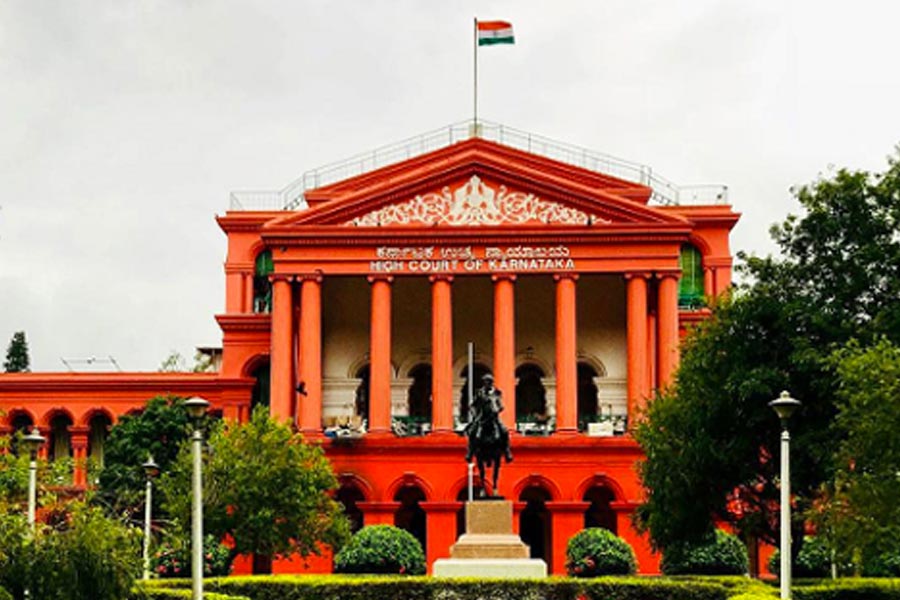The High Court of Karnataka has directed a couple from India to follow the Hague Convention and apply for a 'Conformity Certificate' for their adopted child through the German authorities as the husband is a resident of that country. The couple had knocked on the doors of the HC seeking a direction to the District Child Protection Unit for issuing them with a 'No Objection Certificate' (NOC) and a 'Conformity Certificate'.
The couple had adopted a girl child and the adoption deed between the biological mother and the couple was registered before the sub-registrar in the district headquarters town of Chikkaballapura on March 29, 2023.
The Deputy Commissioner had also verified the deed and recommended that necessary action be taken for the adoption. But still the District Child Protection Unit refused to grant them the NOC and Conformity Certificate. Their petition was heard by Justice M Nagaprasanna.
The Deputy Solicitor General of India, H Shanti Bhushan, who appeared for the Union, contended that the adoption under the Hindu Adoption and Maintenance Act was not internationally recognised and any inter-country adoption has to be done through the Hague Convention. Under the Hague Convention to which Germany was also a signatory, the couple were required “to go before the country in which the father resides, communicate a mail to the Indian counterpart under the adoption regulations and within 10 days a certificate and NOC would be issued in this country.”
Agreeing with the argument, the HC in its judgement said: “The aforementioned norms would indicate inter-country adoption of German national. Therefore, the petitioners shall knock at the doors of the authorities in Germany under the Hague convention seeking a communication to India for issuance of NOC and Conformity certificate. On receipt of the said communication from the aforesaid authority of Germany, the appropriate authority – the CARA (Central Adoption Resource Authority), without brooking any delay, issue a no objection certificate and a conformity certificate.”
Refusing the petition seeking a direction to the authorities, the HC said: “If what is sought by the petitioners is granted, it would run counter to the established procedure. Therefore, the inter-country adoption should necessarily be in tune with the procedure quoted supra.”
The HC disposed of the petition giving the couple the liberty to approach the German authorities to communicate to the CARA for necessary action. The Authority was also directed to issue the necessary certificate within ten days of receiving the communication from the German authorities.
Except for the headline, this story has not been edited by The Telegraph Online staff and has been published from a syndicated feed.











